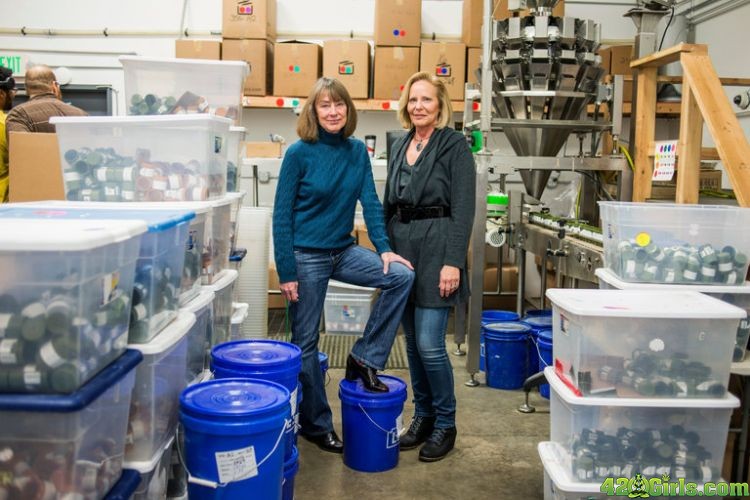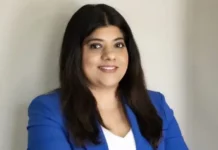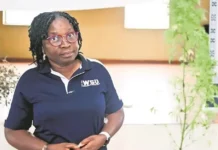The legal marijuana business has created a multibillion-dollar industry, including some interesting side ventures and spinoffs, and even unlikely entrepreneurs have found lucrative niches.
Among them are Deb Baker, a retired high school teacher, and Barb Diner, a former marketing executive, who both live in Denver and have been friends for 27 years. The two had found the relaxed retirement life a bit dull, so they would often bat around ideas that might be interesting to pursue and that could supplement their income.
In 2014, the nascent entrepreneurs saw a niche to be filled — child-resistant marijuana containers that would comply with Colorado’s newly mandated regulation.
On a market-research visit to a dispensary, Ms. Diner and Ms. Baker noticed some of the containers used there were made with chemicals that gave off an unpleasant odor. They thought they had a better idea.
“We thought consumers would want to store their edibles or medicines in containers that were F.D.A.-approved to store food in,” said Ms. Diner, “so we looked into making them from recycled plastic milk jugs.”
They decided to start Higher Standard Packaging in the spring of that year, and since then, they have sold nearly seven million units of packaging to Colorado cannabis dispensaries and beyond.
The initial set of products consisted of plain white canisters in different sizes with child-resistant caps, made by manufacturing partners in California. To find customers, they cold-called more than 100 businesses, mainly in the Denver area, and visited them with samples and price sheets.
Within the first six months, the company began selling other items: tubes, child-resistant caps and more recently, child-resistant, single-serving barrier bags (made of heavy-duty plastic that requires scissors to open). But their mainstay remains plastic containers for flower — the term for dried marijuana that is ready to smoke.
Their adult children thought the venture was an “amusing” pastime at first. Now, they are proud of their mothers’ success, Ms. Diner said, and have even helped with technology and market research.
Higher Standard Packaging has about 50 clients, including cannabis dispensaries as well as makers of edibles, concentrates and other cannabis products. Most are in Colorado, but plans are in the works to expand around the United States and into Canada as the legalization of marijuana becomes more widespread.
The cannabis industry is growing rapidly. The market for legal recreational and medicinal marijuana totaled $6.9 billion in 2016, a 34 percent increase over 2015, according to the Arcview Group, a California-based organization that researches and invests in the industry.
Greg James, publisher of Marijuana Venture, a magazine focused on cannabis business issues, said lessons from Colorado could be instructive for future entrepreneurs in states where marijuana laws are loosening.
“Entrepreneurs in states like California and Maine where cannabis has been newly legalized do very well to visit and study what’s going on,” he said.
Marijuana packaging started out as “a glorified version of the plastic bag that people used when it was illegal,” Mr. James said, and has become an important part of the business encompassing issues of safety, transportability and marketing.
For entrepreneurs thinking about joining the cannabis industry, Ms. Diner and Ms. Baker recommend a high tolerance to risk, the flexibility to change course quickly as regulations change and the dedication to meet the needs of the market. Customers will “need you outside the hours of 9 and 5, and you will get calls on weekends. Marijuana grows 24 hours a day,” Ms. Baker said.
In an industry dominated by young men, Ms. Baker, 62, and Ms. Diner, 56, said cannabis sellers used to look a bit askance when the two women entered the store, but, “We would swear a bit and people would relax,” said Ms. Diner.
Now familiar faces, they say the budtenders (retail marijuana sellers) are likely to call out, “The ladies are here!” when the two visit their customers.
Working out of their homes, the “ladies” run a lean operation, buying products as they sell them to take minimal risk. They have hired no employees and taken in no outside funding.
Doing so, they became profitable in their first year and were able to take salaries. The company uses a delivery van that Ms. Baker’s 90-year-old father-in-law gave them as a gift. “That’s making life a lot easier,” said Ms. Baker.
Three years into their business, the pair still rely on personal interaction and a high level of service to find and keep customers. They note that there are websites selling low-cost containers made in Asia, “but we’re resisting that model,” Ms. Diner said.
“The more we can interact face to face with our clients, the better chance we have of identifying their needs, wishes and dreams,” she said. “It’s a time-consuming model but is serving us well.”
Ms. Baker says the success of their approach may also have something do with the fact that “we remind many of our customers of their mothers or favorite aunts, with our reading glasses perched on our noses,” giving out advice.
About half of their business growth comes from referrals and another large percentage comes from the growth of existing clients. “I taught school for 30 years, and there’s an educational component to this as well,” Ms. Baker said.
The personal connections also open the door to collaborations. Marijuana products are coming in new containers including single-use coffee pods, tins, droppers and others, and Higher Packaging is moving beyond its basic white canisters to partner with companies to customize packaging.
The marijuana industry can be a roller-coaster of good news and bad. “Our phones were ringing off the hooks when California legalized recreational cannabis use in November,” Ms. Diner said. A few weeks later though, when President-elect Donald J. Trump said that he would nominate as attorney general Jeff Sessions, a hard-line marijuana opponent, it had a chilling effect throughout the industry and among its investors.
More than half the states in the country have some form of legalized marijuana. But as the industry evolves, its laws change too. Regulations are still in flux, meaning that companies like High Standard need to change their products and stay nimble.
In October 2016, a new law in Colorado required the packaging of all cannabis edible products — such as the chocolate bars and brownies infused with marijuana — to be stamped with a symbol indicating they contained THC, marijuana’s psychoactive ingredient. This was a public safety measure meant to ensure people could distinguish the products from their non-cannabis foods.
Because the edible cannabis makers had to create new production molds for their foods to include the symbol, their business costs increased. As a result, they looked for areas where they could reduce expenses, like packaging. This meant Ms. Baker and Ms. Diner had to put in extra time to find ways to accommodate the changes the new laws required but still offer products that were aesthetically pleasing and economical.
Payment methods are also still evolving in the legal marijuana industry. Although many Higher Standard customers now have checking accounts, Ms. Baker and Ms. Diner used to have to take payments entirely in cash. Their first payment from a Denver cannabis dispensary was typical — $5,400 entirely in small bills and reeking of marijuana.
Worried that their bank would not take the deposit or might even close their account, the entrepreneurs put the money in Ms. Baker’s clothes dryer with some Febreze sheets to remove the smell.
Ms. Baker did not have a safe at home, so the pair hid the money in the freezer until they could take it to their bank. Now they joke about “laundering money” and “cold hard cash” but at the time, carrying around such large amounts of cash was unnerving, Ms. Diner said.
Ms. Baker marvels at how quickly marijuana product suppliers and retailers are embracing innovative ideas with professionalism. At the recent Marijuana Business Conference she attended in Las Vegas, Ms. Baker saw new mechanization products like automatic plant trimmers and bottle fillers, and retail nutrient mixes and low-energy lighting designed specifically for marijuana plants.
“In my day, a pot convention was six people hanging out in a college dorm room,” she joked.
News Moderator: Katelyn Baker [URL=”http://www.420magazine.com”]420 MAGAZINE ®[/URL]
Full Article: [URL=”https://www.nytimes.com/2017/01/18/business/smallbusiness/cannabis-pot-entrepreneurs-marijuana-colorado.html”]Two Retirees Create Marijuana Packaging Business In Colorado[/URL]
Author: Julie Weed
Contact: [URL=”https://myaccount.nytimes.com/membercenter/help.html”]The New York Times[/URL]
Photo Credit: Matt Nager
Website: [URL=”https://www.nytimes.com/?action=click&contentCollection=Entrepreneurship®ion=TopBar&module=HomePage-Title&pgtype=article”]The New York Times[/URL]











